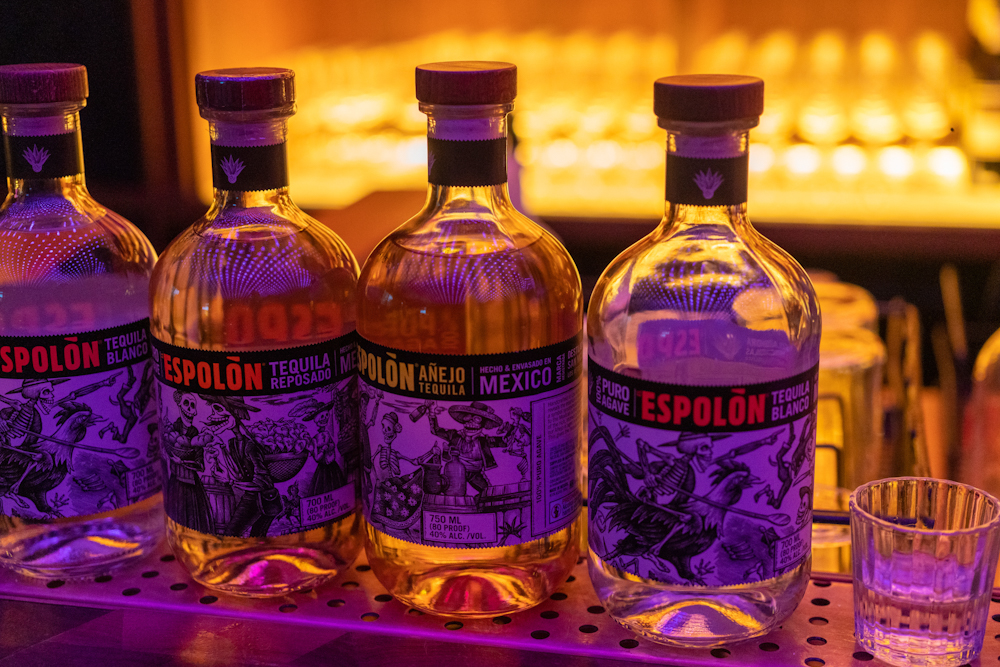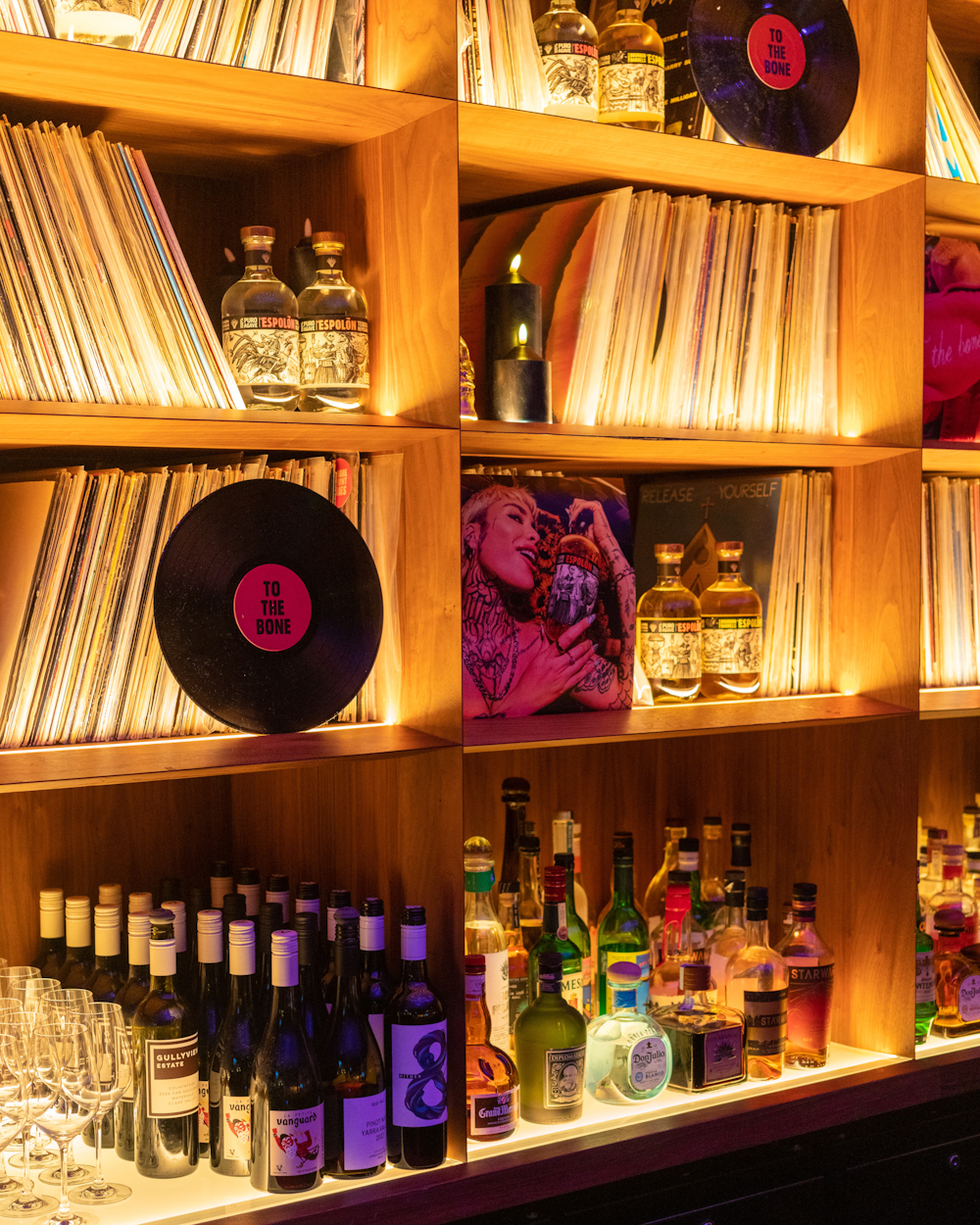Espolon Tequila: Interview with Krystal Hart Brand Ambassador Campari Australia
We've been enjoying Espolon Tequila at home and recently attended an incredible Espolon "To the Bone" masterclass at HER Melbourne.
David from The World Loves Melbourne was able to interview Krystal Hart, Brand Ambassador of Campari Australia, to find out more about this stunning tequila from Mexico -
What makes Espolon tequila special in a sea of tequilas in the market?
Espolòn Tequila is crafted from 100% blue weber agave that is hand-harvested by jimador’s in Los Altos – a craftsmanship that permeates through the brand at every level.
Espolòn is unique in that it respects traditional cooking techniques that produce sweet, earthy and caramelized notes that are a trademark of tequila. The tequila is then aged in charred American oak barrels giving it a rich, complex and well-rounded taste that differentiates it from competitors.

Can you explain the different varieties of agave used in tequila production, and how each variety influences the final flavor profile?
Tequila is produced using one varietal of agave the Agave Tequilana commonly referred to as the Blue Agave which is considered the workhorse of the species prized for its high sugar content and growing resilience.
What are the key differences in the production process of tequila, and how do these differences impact the taste and quality of the spirits?
Terroir carries one of the most defining principles that affect flavour; weather/climate year on year, how long the agaves are grown for and the soil they grow in.
Harvesting the pinás (heart) can attribute to flavour, if harvested too early they carry a green herbaceous tannic note and left too late the plant consumes its sugars and can take on more cooked flavour qualities.
How the piná’s are cooked is important. The cooking process converts the carbohydrates into simple sugars for fermentation. Whether the agaves are cooked in hornos; brick ovens used to cook agaves through stem, quite labour intensive but produces less bitterness. Or Autoclaves (stainless steel pressure cooker), a more common practice, also relies on steam to cook the agaves. And finally the diffuser method which inverses the process, extracts the frustans from the pinas first with pressurized water then in some instances relies on acids to convert the sugars. This process can be used in large scale production and can sometimes results in no cooking of the agave at all and is considered to affect the flavour profile considerably.
The fermentation of the agaves is important. Proprietary yeast vs open air ferment contributes to flavour along with the duration they aguamiel is fermented for.
The distillation process also affects flavour profile. Tequila must be distilled twice to be classified as tequila however weather it is in pot or column still and whether its distilled twice of three times and to what strength greatly affects flavour.
Lastly for Reposados, Anejo’s, Extra Anejos, Crystalinos etc any of the varietals that are aged affect flavour. The style, size, duration, level of char and seasoning will affect the flavour of the tequila. And whether sugar has been added.

How does the terroir, or the environment where agave is grown, affect the plant's growth and the flavor of the resulting spirit?
Terroir hugely impacts the flavour profile of the resulting tequila. The Tequilana varietal can spend anywhere between 6 – 12 years in the soil growing. How the weather and climate behaves year on year can impact the flavour profile let alone the soil types. If the agaves are grown in the highlands (Los Altos) the agaves can benefit from rich volcanic soil which produces agave plants with a higher sugar content vs agave plants that are grown in the lowlands (Tequila Valley) that carry a more herbaceous flavour profile.
Can you share any upcoming trends or innovations in the agave industry that you find particularly exciting or promising?
The industry is in a really interesting place right now. It’s exciting to see people’s perception of Tequila changing from merely what’s in a shot glass to being a sophisticated drink of choice and the workhorse behind so many brilliant cocktails.
The iconic margarita and all its varietals, The Rosita; a playful riff on a Tequila Negroni even towards more mixology leaning drinks like the clarified milk punch with Tequila as its main ingredient.
As an ambassador, I am seeing demand for premium Tequila’s, like Espolòn, grow year-on year and I’m happy to say that I don’t expect this trend to slow down anytime soon.
In Australia and the US we’re seeing growth in aged Tequilas, especially in the Crystalino category; aged tequila filtered to remove colour.
More consumers and guests are enjoying tequila neat and in mixed cocktails as we start to educate our guests and consumers on the agave spirits category.

What are some common myths or misconceptions about agave spirits, and what should consumers know to better appreciate and enjoy them?
All Tequila is 100% agave – tequila by law must be a minimum of 51% agave sugars but can consist of other sugars, If it is 100% agave it will say so on the bottle
What makes a great cocktail?
Great cocktails consist of fresh, seasonal ingredients. If you’re making a margarita at home take the time to squeeze your lime juice fresh. Good quality ice and lots of it, is the difference between a good and a great Tommy’s margarita. Lastly measure your ingredients everytime, consistency is key when it comes to making great drinks every time you make them.
What are your favourite cocktails to make?
Espolon Rosita
30mls Espolon Blanco
20mls Campari
20mls Cinzano Dry Vemrouth
20mls Cinzano Sweet Vermouth
Build in a mixing glass with lots of ice and stir. Pour into a coupe and garnish with an orange twist.
